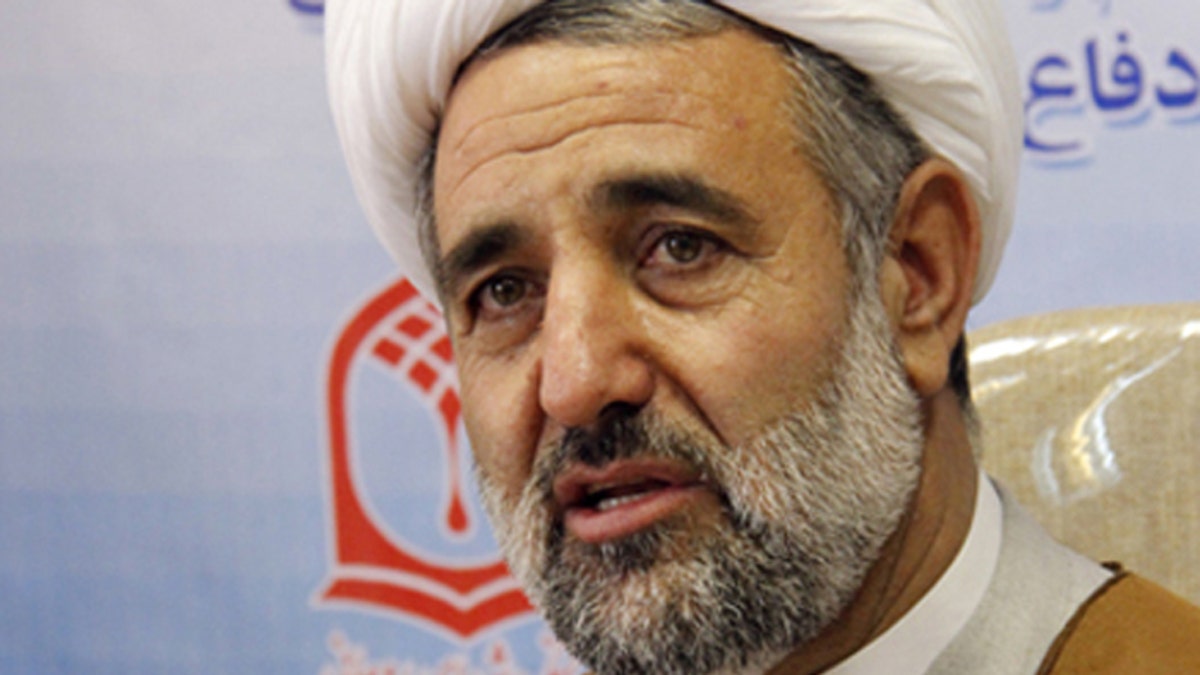
Iranian Revolutionary Guard Corps (IRGC) adviser Mojtaba Zonnour boasted that Tehran's missiles could hit a U.S. military base.
A top Iranian defense official's claim that a U.S. military base in the Indian Ocean is now within missile range served both as a threat to American interests and a revelation that, if true, Tehran has doubled its striking distance.
"In the event of an irrational attack by the U.S., America's military bases will not be safe from our missiles, whether in Bahrain or at Diego Garcia in the Indian Ocean," the senior official, Iranian Revolutionary Guard Corps (IRGC) adviser Mojtaba Zonnour, was quoted as saying to Iran's "Defa Moghadas," or Holy Defense.
[pullquote]
The U.S. Navy operates a naval ship and submarine support base, military air base, space-tracking facility at Diego Garcia, an atoll some 1,000 nautical miles off the southern tip of India. If the regime in Tehran really can hit Diego Garcia with its ballistic missiles, it means they have a range of at least 3,100 miles -- more than double current estimates. And the boast came even as Iranian officials were in Switzerland, meeting with their Western counterparts to finalize a nuclear deal.
Zonnour spoke in response to boilerplate U.S. assertions that “all options are on the table,” regarding efforts to force Iran to comply with international efforts to curb its nuclear program. But it was the first time Iran has mentioned Diego Garcia, particularly in the context of a potential missile strike. The base was used to launch sorties into both Iraq and Afghanistan following the 9/11 attacks.
"Diego Garcia is a very critical base in the Indian Ocean," said Claire Lopez, vice president for research and analysis at the Center for Security Policy.
Although Iranian military leaders have often made improbable boasts about their ability to strike at the U.S., Lopez said Zonnour's claim is not so outlandish.
"The Pentagon has more than once issued open-source reports that the Iranian [intercontinental ballistic missiles] would be able to reach the continental U.S. by next year," she noted. "So Diego Garcia may not be such a stretch."
Missile range, coupled with nuclear capability, could make Iran a major threat to its enemies. Western officials accuse the Iranian regime of wanting to maintain a uranium enrichment capability exceeding the limits appropriate for civilian nuclear power stations, while the Iranian regime maintains its program is for peaceful purposes.
U.S. and Iranian officials reconvened in Geneva this week in hopes of breaking the present deadlock regarding a permanent deal with Iran ahead of the July 20 deadline. The P5+1, including the U.S., Britain, France, Germany, Russia and China, agreed on Nov. 24, when the interim deal was announced, to allow for an extension of up to six months if a final deal could not be reached. It was that interim deal that allowed Iran to wriggle out of crippling sanctions imposed by the West.
Iranian Deputy Foreign Minister Abbas Araghchi has already mentioned a possible six-month extension if the deadline passes.
"We hope to reach a final agreement but, if this doesn't happen, then we have no choice but to extend the Geneva deal for six more months while we continue negotiations," Araghchi was quoted as saying by Iran's state news agency IRNA. "It's still too early to judge whether an extension will be needed."
The U.S. raised the possibility of limiting Iran's missile program as part of the talks two months ago, prompting Supreme Leader Ali Khamenei to say it would be "stupid and idiotic" to expect Iran to comply. Subsequently, he ordered that Tehran's defense contractors to increase production of the missiles, according to reports. The U.S. appears to have scrapped the idea of limiting Iran's missile capabilities, with Defense Secretary Chuck Hagel stating that the P5+1 is focused only on Iran's nuclear program.
The latest threat, coming even as negotiations proceed, is part of Iran's long history of duplicity, said Lopez.
"They are not negotiating and never have negotiated in good faith," she said. "They are taking us for fools. Their nuke program at home continues apace, and whatever is being said in Geneva is irrelevant."
As for the threat, Lopez said the U.S. should listen.
"It's a little foolish not to take seriously a country that not only continuously threatens genocide against Israel, but the U.S. as well, all while developing the means to carry out the threat," she said.








































